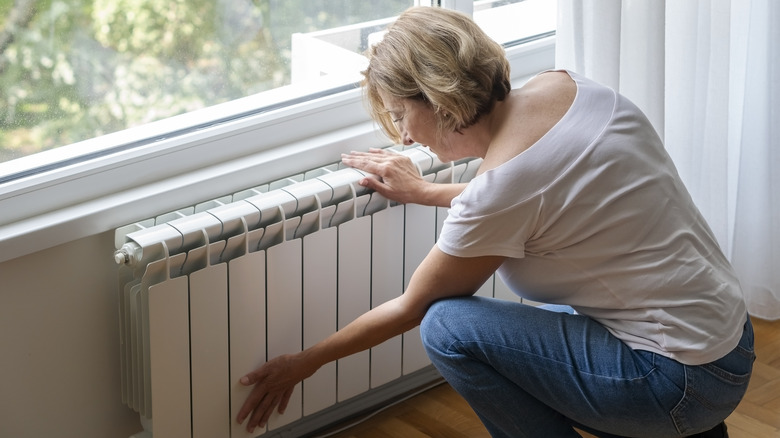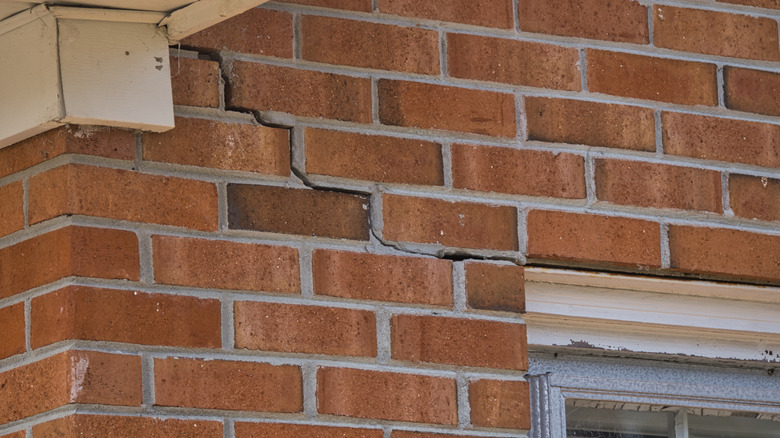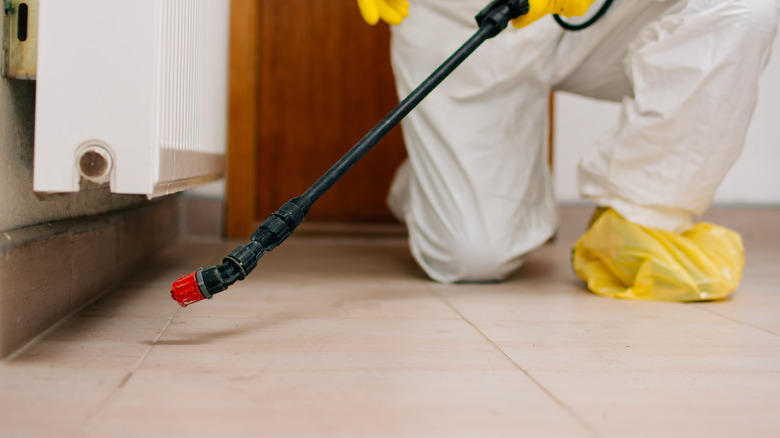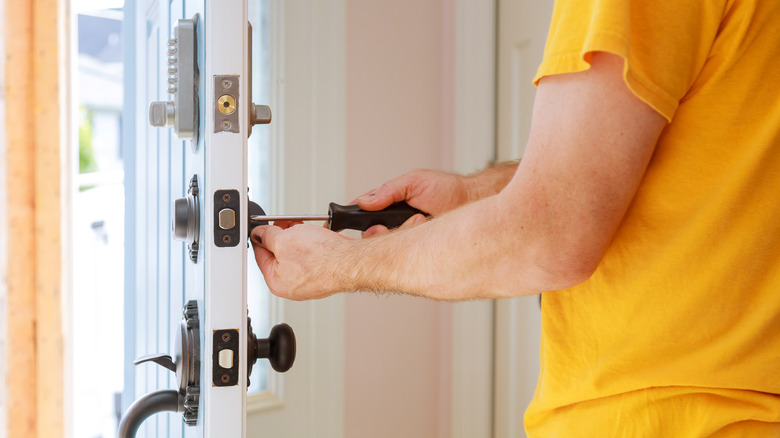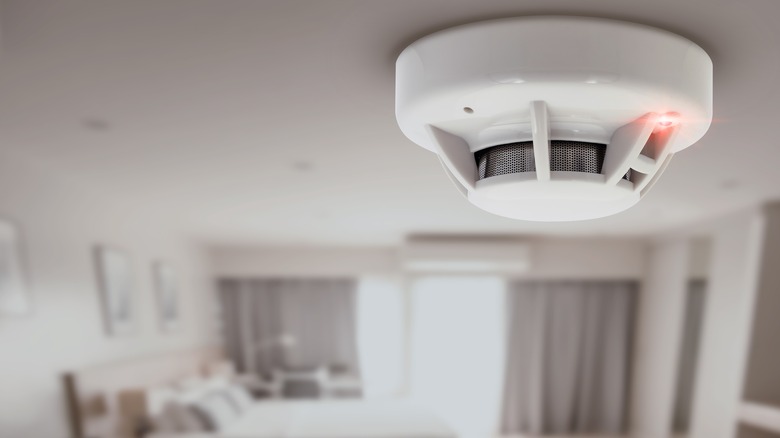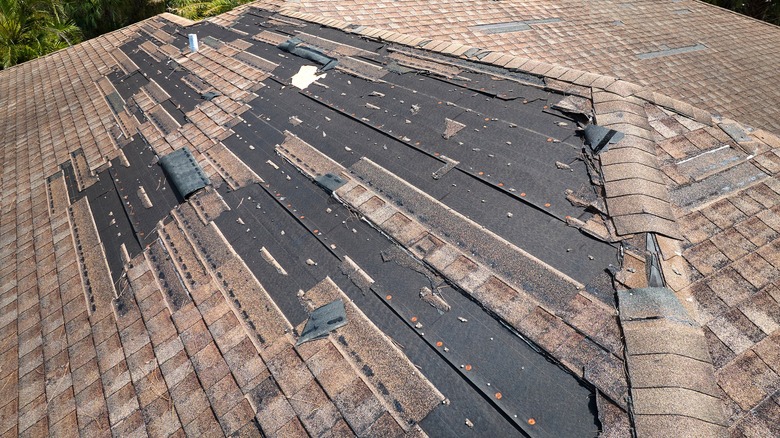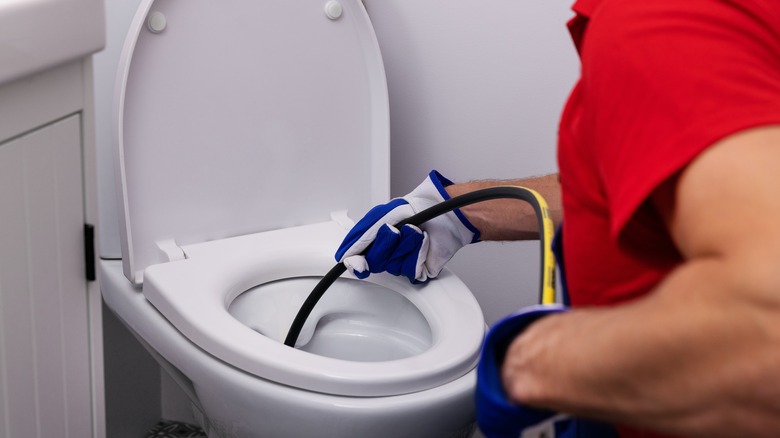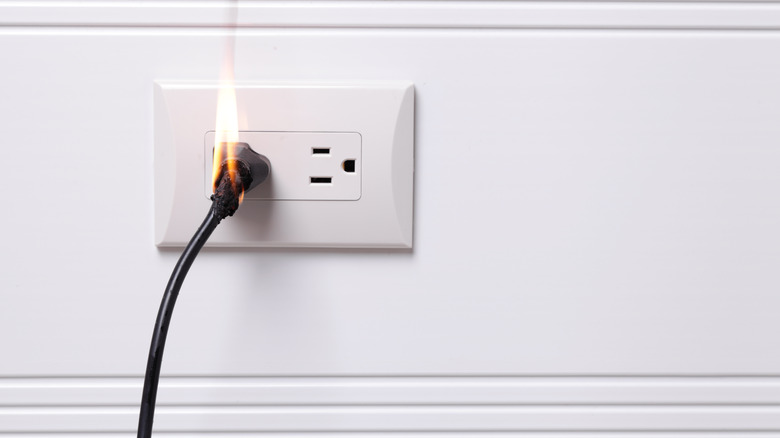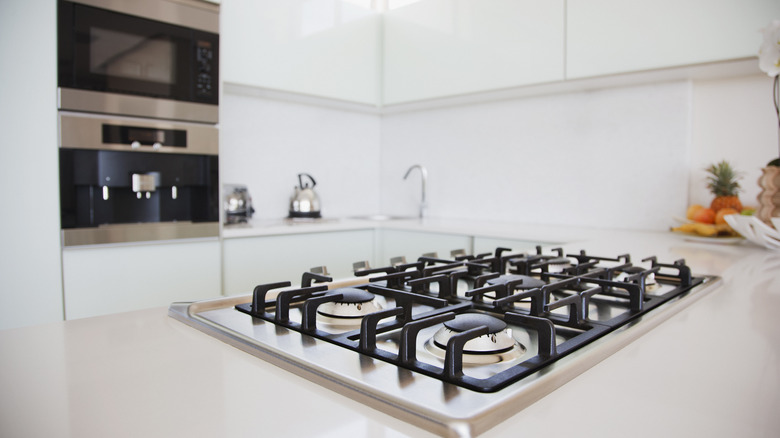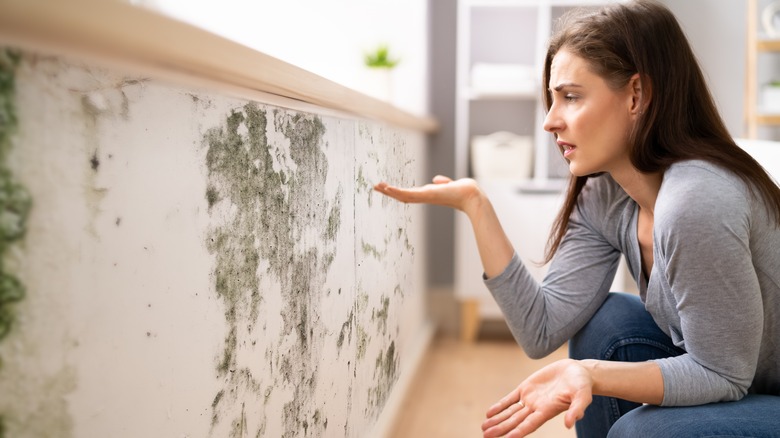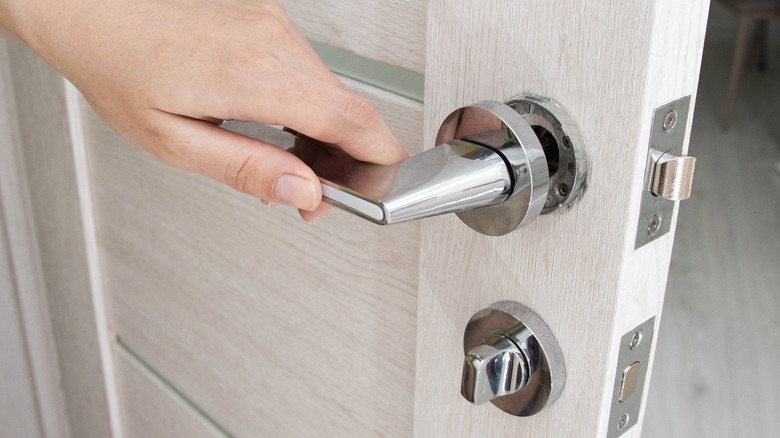What You Can Legally Ask Your Landlord To Improve Or Replace
As a renter, it is important to know your tenant's rights! Although the laws for what your landlord must legally provide for you and fix up around the house differ by state and county, there tends to be a national baseline for rented homes. You have the right to be safe and healthy in your home. You deserve a comfortable ambient temperature, running water, and electricity. The home should not have threats to your safety, like pests, mold, or dangerous structural abnormalities. The doors and windows should close and lock to keep you safe from intruders, and you should have all the alarms to keep you safe from an emergency, like a fire or gas leak.
Whether you are just moving in or have lived in your home for a while, if one of these things is broken around your home, you can legally ask your landlord to improve or replace them. And legally, your landlord must listen to you. While some landlords might respond to more casual requests for help, others might need to be aware that you know the laws in your area. It helps to include the exact language from the local sanitary or building code in your request if your landlord is pushing back.
You are entitled to repairs to essential utilities
As a tenant, you have the right to utilities that function properly. These are things like heating, plumbing, and electricity. These services are important because they ensure your place is safe and fit for habitation. While the exact laws in each state differ, most will have a state sanitary code laying out the minimum livable standards. For example, in Massachusetts, the code states that landlords must not only provide a functioning heater but must pay for it unless the original rental agreement states otherwise. From September 16 through June 14, each room in a rented home must be at least 68˚F and no hotter than 78˚F if it's after 7:00 am or before 11:00 pm. Outside those hours, it has to be at least 64˚F in the house.
There are similar rules for how the plumbing works for waste and water and electricity use. If you live in a different estate, you can find the specific rules around utility repairs by searching "state sanitary code [your state]." If your landlord refuses to fix a problem after you have requested it in writing, using the exact language from your state's laws can help your case.
You can ask for structural repairs
If the home you are renting has any structural damage that requires repairs to make it safe and livable, you have the legal right to ask for them in most states. For example, in Los Angeles County, Civil Code 1941-1942 states that it is the landlord's responsibility to fix water leaks promptly. These leaks can cause roof, doors, windows, and wall issues. If left untreated, they can make a home unsafe due to structural damage or mold growth.
Foundation issues can be a bit tricky. In most states, landlords might ignore requests for repairs not specifically mentioned in a housing code. For example, while the Texas Property Code might not mention a cracked foundation, it does say that renters are legally entitled to repairs if the issue might cause them to become sick or hurt. Cracked foundations pose potential hazards like slipping and falling. They may also jeopardize the stability of the entire property. In this instance, a more persuasive case must be made. For example, is the foundation crack causing the front steps to pull away from the property, causing a trip and fall hazard? Is it pulling a wall haywire, which poses a cave-in risk? The landlord should have these fixed rather than leave themselves open to a potential personal injury lawsuit.
Pests should not be tolerated
If there's a pest infestation in your home, the landlord is usually responsible for addressing the issue. While laws differ between states and counties, it is usually the landlord's job. Pests like lice, bedbugs, and termites, as well as rats, can pose serious health risks and quickly make the home unlivable. For example, the Virginia Maintenance Code states that the landlord has a limited timeline to rid the property of these unwanted visitors as long as it is deemed "infested" by a certified professional. The landlord might not be responsible in situations where there is one rat sighted in the kitchen or just one raccoon making a ruckus in the attic. In this instance, a pest control company (and the landlord!) might not see the home as infested or unlivable. In these cases, the tenant would need to take action by purchasing a mouse trap or luring the raccoon out of the attic.
If the animals multiply, or they begin creating issues that make the home unlivable (like chewing through wire or leaving feces around the home), you can then usually reach out to your landlord again with the new proof of infestation. Of course, a reasonable landlord would take care of the problem up front. However, those who only follow the letter of the law, not the spirit, will wait for further signs.
You can push for better locks and security
You can ask for improved locks or security measures if you feel unsafe in the rental unit. While most states do not have laws that require landlords to pay for this request, you still have the legal standing to ask. Instances that might prompt you are wanting to be sure a previous tenant does not still have access when you move in or to ensure a former roommate stays away and doesn't bother you.
The exception to the rule in legality is if you have been the victim of domestic violence. For example, the District of Columbia §42–3505.08 states that landlords must change the locks upon request and do so within five days. The tenant must provide a copy of the protective order, and the perpetrator of the violence must have also been a tenant. In Oregon, ORS 90.459 says that the same applies to victims of stalking as well, but they don't need to provide any paperwork like in DC. If you don't know the laws in your state, you can always ask your landlord to replace the locks for you – regardless of whether or not they are legally obligated to, they still might.
All safety safety measures fall on the landlord
In most states, landlords are required to install and maintain key safety features in the homes they provide. These are things like smoke detectors, carbon monoxide detectors, and fire extinguishers. For example, the Texas Property Code 92.251 – 92.264 says there has to be at least one smoke detector outside each bedroom, with other provisions being made for multiple-story homes. This is essential to making the home livable, as smoke detectors are vital in alerting occupants to the presence of smoke and providing early warning in the event of a fire. In addition, New York City requires carbon monoxide alarms alongside smoke detectors. Designed to detect this colorless and odorless gas, these types of alarms can save lives.
In addition to detection devices, landlords are typically obligated to provide fire extinguishers to mitigate the risk of small fires. These extinguishers must be easily accessible and regularly maintained to ensure they function properly when needed. While most people keep the devices in the kitchen, in some states, the law allows them to be mounted in the hallway for communal use. As in Minnesota, this communal use clause typically only applies in apartment buildings, not single-family homes.
Exterior maintenance also falls on the landlord
If the roof on your rented home is sagging or the shingles are falling off — it is the landlord's job to fix it. The same can be said of peeling paint or deteriorating siding. This is because the landlord has to make sure that the place where people live is safe and comfortable. Maintaining the outside of the building is important because it protects the whole structure and keeps the people inside safe. Ignoring these issues will only cause them to compound, leading to things like major leaks and potential safety issues through cave-ins.
Sometimes, the wording of the laws is a little tricky. Landlords might try to use this wording to avoid making repairs. So, when reporting an issue like roofing problems or damaged siding, be specific in the language that you use. For example, California Civil Code Secs. 1929, 1941 says that landlords must provide tenants with "effective waterproofing and weather protection of roof and exterior walls, including unbroken windows and doors." So, when complaining about the problem, you would need to emphasize how the issue makes your home vulnerable to the weather.
Any plumbing issues go through the landlord
Landlords are legally bound to address and resolve plumbing issues promptly. This means that if the water stops working, the toilet won't stop running, or the water pressure is bad, it is the landlord's job to fix it up. For example, the Vermont Department of Health requires that "every rented mobile home lot shall have access to and every dwelling unit or rooming house shall be connected to a supply of water sufficient in quantity and pressure to meet the ordinary needs of the occupant(s)." In some cases, landlords must make repairs quickly, as a home cannot legally go without water for any period. However, other issues like a running toilet, while still must be legally fixed – usually have a longer period for resolution. It can be up to a month or so, depending on the state.
Sewage problems also fall under the plumbing umbrella. If you notice that your toilet has trouble flushing consistently (and the plunger method is not fixing it), there might be a blockage the landlord must take care of. The same can be said for bad smells coming from any drain or septic overflow in the yard – as long as you did not sign a rental agreement that says anything to the contrary about responsibility.
Electrical problems are dangerous and should be fixed ASAP
Ignoring electrical issues is very dangerous. Because of this, landlords are legally responsible for quickly fixing any electrical problems. This is due to the inherent dangers of faulty wiring, outlets, or fixtures. Faulty wiring can lead to electrical fires, posing a significant risk to both life and property. Any fixtures that exhibit malfunctions, such as sparking or overheating, are equally concerning, as they can lead to electrical shocks or fires, too. For example, the Washington State Legislature requires all landlords to "keep any shared or common areas reasonably clean, sanitary, and safe from defects increasing the hazards of fire or accident" and "maintain all electrical, plumbing, heating, and other facilities and appliances supplied by him or her in reasonably good working order."
It is the same in Utah, as the Fit Premises Act requires that landlords "maintain electrical systems, plumbing, heating, and hot and cold water." So if your power suddenly goes out, your outlets are sparking, or you notice any overloaded or bad wiring in the home, you have good standing to ask your landlord to fix it. Electrical problems that are usually not covered by landlords are lightbulbs, which tenants typically replace.
You should have broken appliances replaced
In most states, if an appliance is provided by the landlord, it falls to them to fix or replace it. In some rental situations, the apartment might have come unfurnished, which means you bought and installed your own microwave, washing machine, refrigerator, etc. If these items break, you will need to fix them yourself. However, if your oven or stove goes out and they come with your place, contact your landlord because they have to fix them for you. For example, the Fit Premises Act in Utah requires that landlords look after air conditioners and "maintain other appliances and facilities as specifically contracted in the rental agreement." In cases like these laws with vague wording, before contacting your landlord, be sure to read your rental agreement carefully. What exactly does it say about your appliances? How does this appliance issue compromise your safety and make your home unfit?
In some cases, the landlord might use the letter of the law to push back and insist your appliance doesn't need repairs. The New York Times reports that you can take your landlord to the housing court or even replace the item yourself if you feel stuck. The key is to document each step in writing to protect you in case of a later dispute.
Ask for mold and mildew removal
Getting rid of mold and mildew is usually the landlord's responsibility. Mold can let out spores and mycotoxins that, if inhaled, can cause respiratory problems, allergies, and serious other health issues. If there is a mold problem, request its removal, especially if it's affecting your health. For example, Hawaiian Law S.B. NO. 3160 requires that all landlords provide written notice to tenants before moving in if they know any mold is present. If they don't know it is there and the tenant informs them, the clock starts to tick. They have limited time to have a professional assessment of the toxicity of the mold. If the assessor determines the infestation to be above the state standards for acceptable risk, the landlord must pay to resolve the issue.
Unfortunately, other states like Georgia don't have any official mold housing laws on the books. However, if you suspect mold in the home you rent and it is causing harm to your health, you are not out of luck. According to The Atlanta Journal-Constitution, residents of Sandy Springs, Georgia, made enough noise about the mold problems in their homes and eventually got their landlord to fix the issue despite no legal obligation to.
The landlord should make window and door repairs
If you accidentally break a window in your apartment, it is typically your responsibility to replace it. However, if someone else breaks a window (like a neighbor's kid with a baseball) or the door doesn't shut properly anymore, this might fall to the landlord (or the third-party responsible for the damage). In any case, whether you, your neighbor, or the landlord pay for the replacements, you should document each step of the process in writing. This way, you will not be on the hook for "damaging the property" when you move out, possibly losing some or all of your security deposit.
For example, the Arizona Residential Landlord and Tenant Act states landlords must "make all repairs and do whatever is necessary to put and keep the premises in a fit and habitable condition." They must also "comply with the requirements of applicable building codes materially affecting health and safety." If the window is broken and lets in a draft, or the doorframe has warmed due to heat or humidity and is no longer closing, the home is not fit, habitable, or safe.
Requests for water damage repairs have to be listened to
If there is water damage in your home, it could be the landlord's job to fix it. However, in most states, there are a few caveats to the law. For example, did a pipe burst in the wall and flood your home? This was not your fault, as it could be due to a drastic change in weather or poor maintenance. So, the homeowner must pay for it. However, if you leave the tap on in the tub and overflow everything, that is negligence on your part. In that instance, you (or any renter's insurance you have) might be on the hook to cover the cost of the repairs.
Something to consider, however, is that even though the landlord might be responsible for fixing the water damage to your property, they typically are not legally required to replace your ruined belongings. In this instance, you must also have renter's insurance on top of your basic legal protections to come away from an accident like this unscathed.

